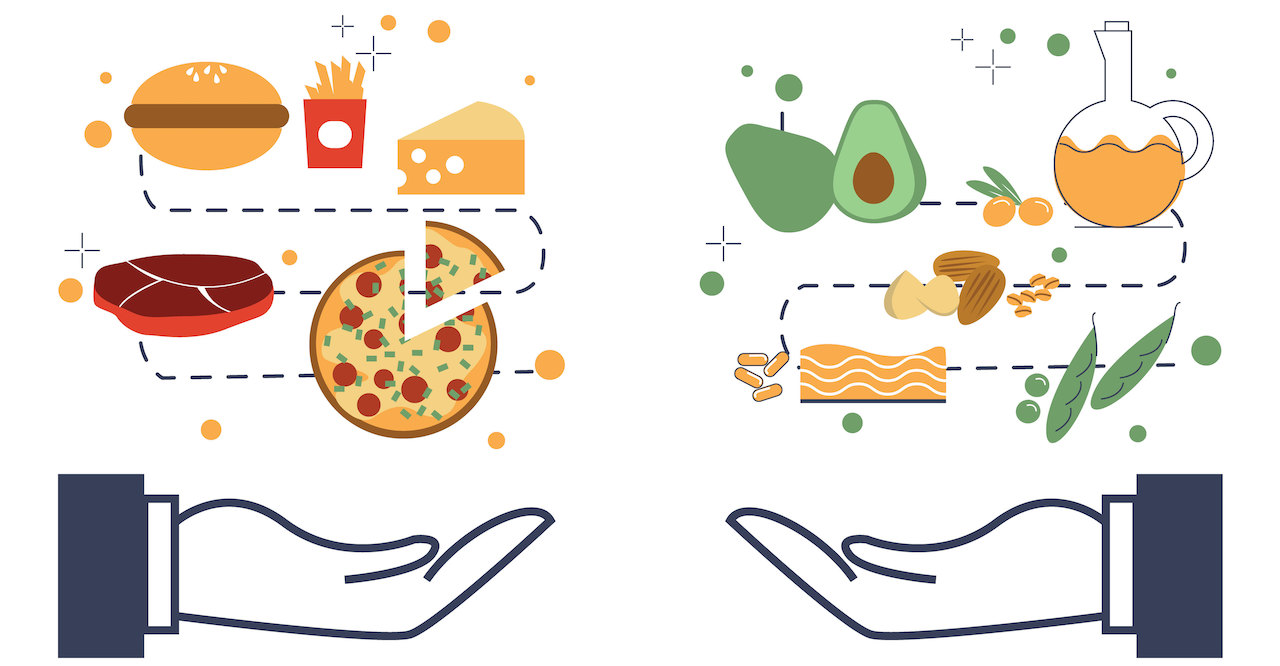Fat makes you fat, right? Not necessarily. Like carbohydrates and protein, fat is an essential nutrient, and your body needs some of it to do its daily work.
Fatty facts
Fat is a major source of energy. It’s used to build cell membranes and the covering of nerves. It can help your body absorb fat-soluble vitamins A, D, E, and K, and is essential for keeping your skin and hair healthy.
Fat can also improve hormone levels, and support the health of your brain and bones. What’s more, some fats can help lower your risk for heart disease, diabetes and obesity.
Let’s hear it for fats then! But not all fats are the same. Certain types are better for your health than others.
The good
Monounsaturated fat is typically liquid at room temperature. This type can lower cholesterol levels, reduce blood pressure, and slash your risk for heart disease. Monounsaturated fat is also an excellent source of Vitamin E, which is known to protect against cell damage, fight inflammation, and prevent diabetes, Alzheimer’s disease and cancer.
Get your good fats with olive oil, canola oil, avocados, and nuts, e.g. almonds, cashews, and hazelnuts, to your diet to get the good stuff in.
Polyunsaturated fat is liquid at room temperature and, like monounsaturated fats, can also improve cholesterol levels and lower your risk for heart disease. Most of us know the two types of polyunsaturated fats: Omega-3 fatty acids and Omega-6 fatty acids.
Omega-3s are crucial fatty acids that your body needs to function. These fats may help prevent and treat heart disease and stroke, reduce blood pressure, and lower levels of LDL “bad” cholesterol and triglycerides (bad fats in the blood). Omega-3s can also protect against memory loss, ease joint pain, and reduce symptoms of depression. Find these fats in fatty fish like salmon, mackerel, and sardines, flaxseeds, pumpkin seeds, and walnuts.
Omega-6 fatty acids are also known for their potential heart, brain and bone health benefits. They can also help regulate your metabolism. Fill up on Omega-6 with soybean, sunflower and corn oils. Pine nuts, Brazilian nuts and sesame seeds are also good sources.
The bad
Trans fat is the worst type of dietary fat. These manmade substances are created in an industrial process that adds hydrogen to liquid vegetable oils to make them solid. They can make food taste better and last longer but are dangerous to your health.
Research shows that even small amounts of trans fats can raise harmful LDL cholesterol and decrease beneficial HDL cholesterol levels. This can increase your risk of heart attack and stroke. Trans fats also cause inflammation, which can lead to diabetes, heart disease and other chronic conditions.
Trans fats have no health benefits and should be cut out of your diet. Avoid fried foods, processed snacks, and packaged biscuits and pastries.
References:

